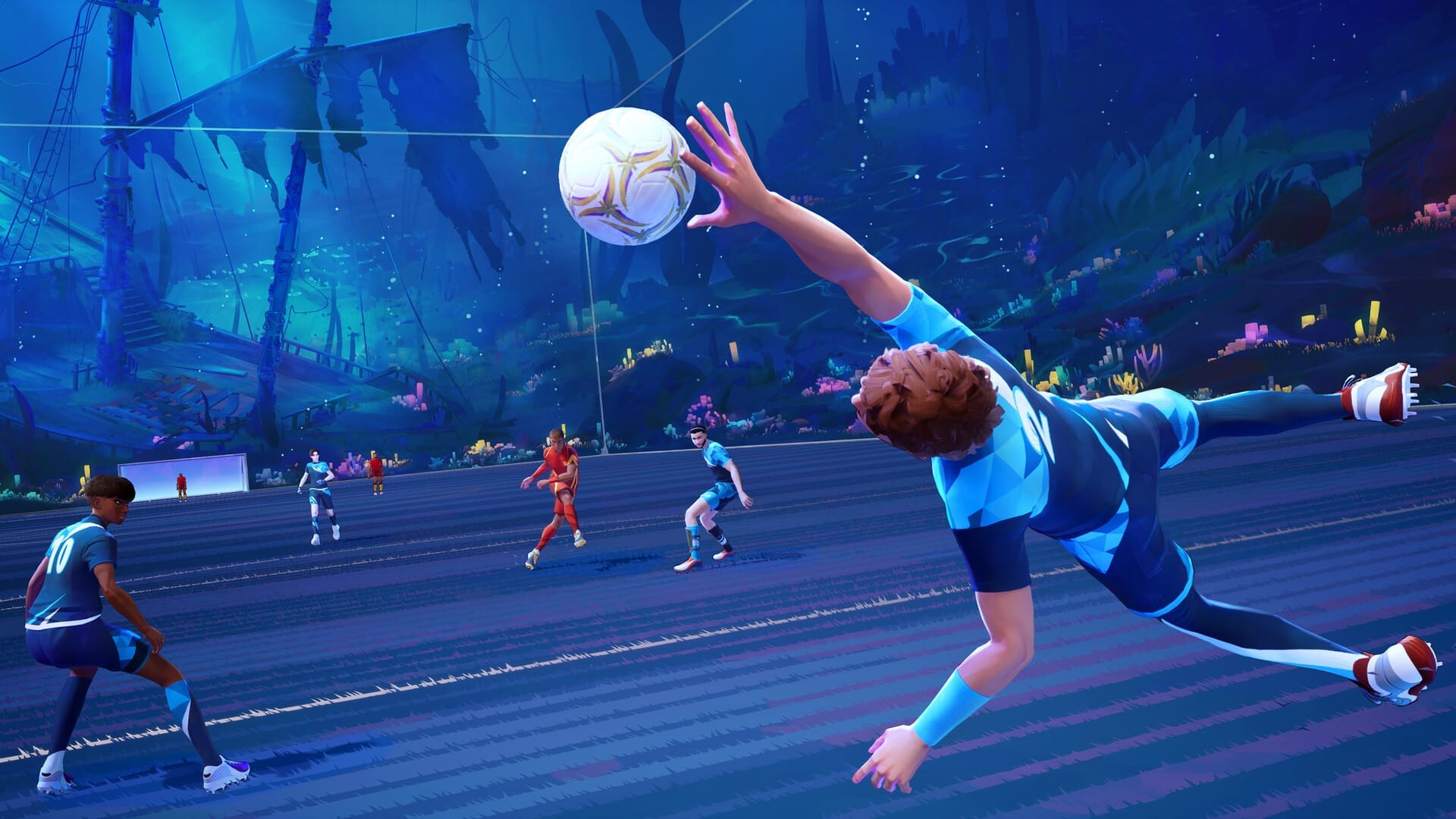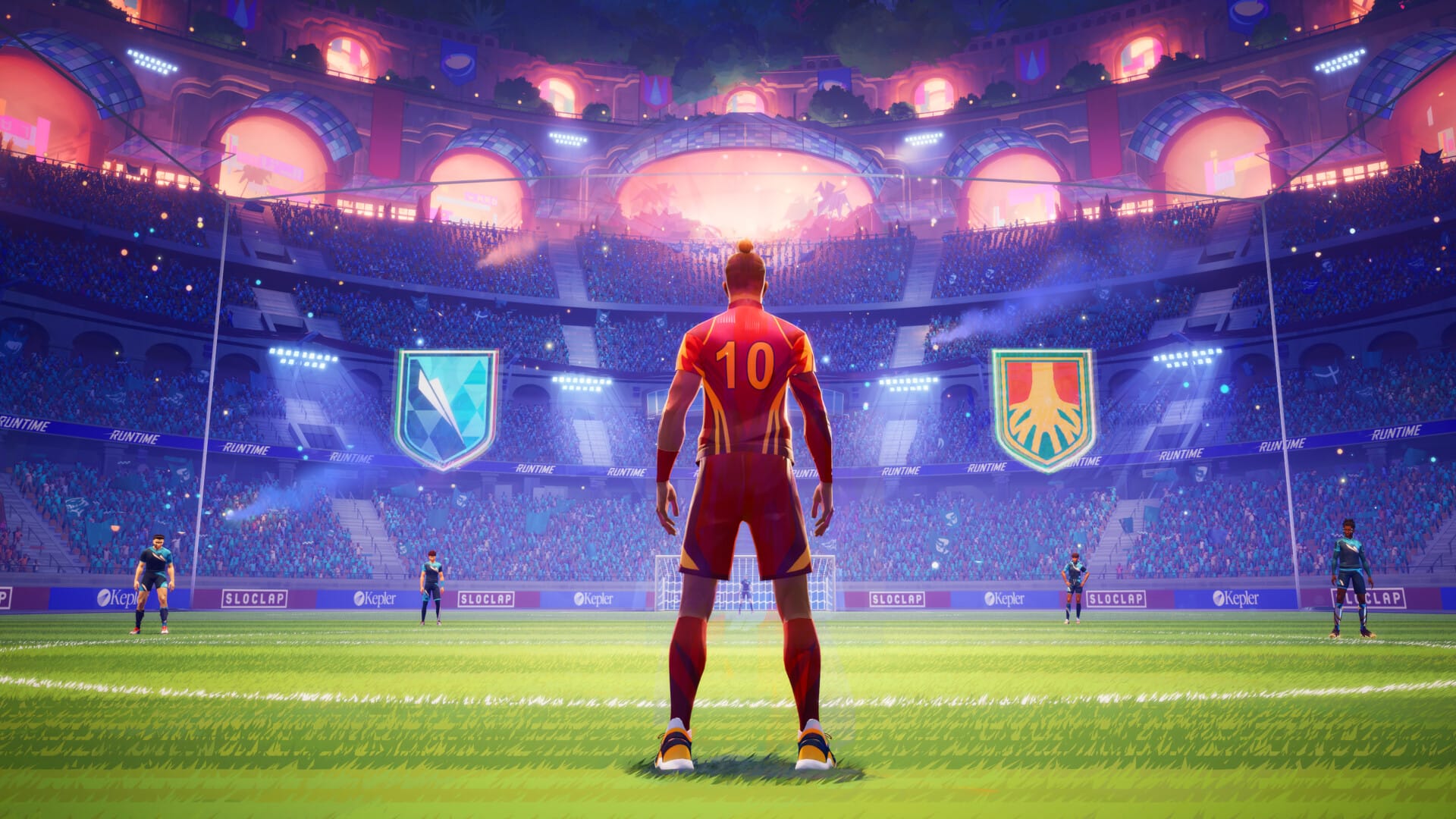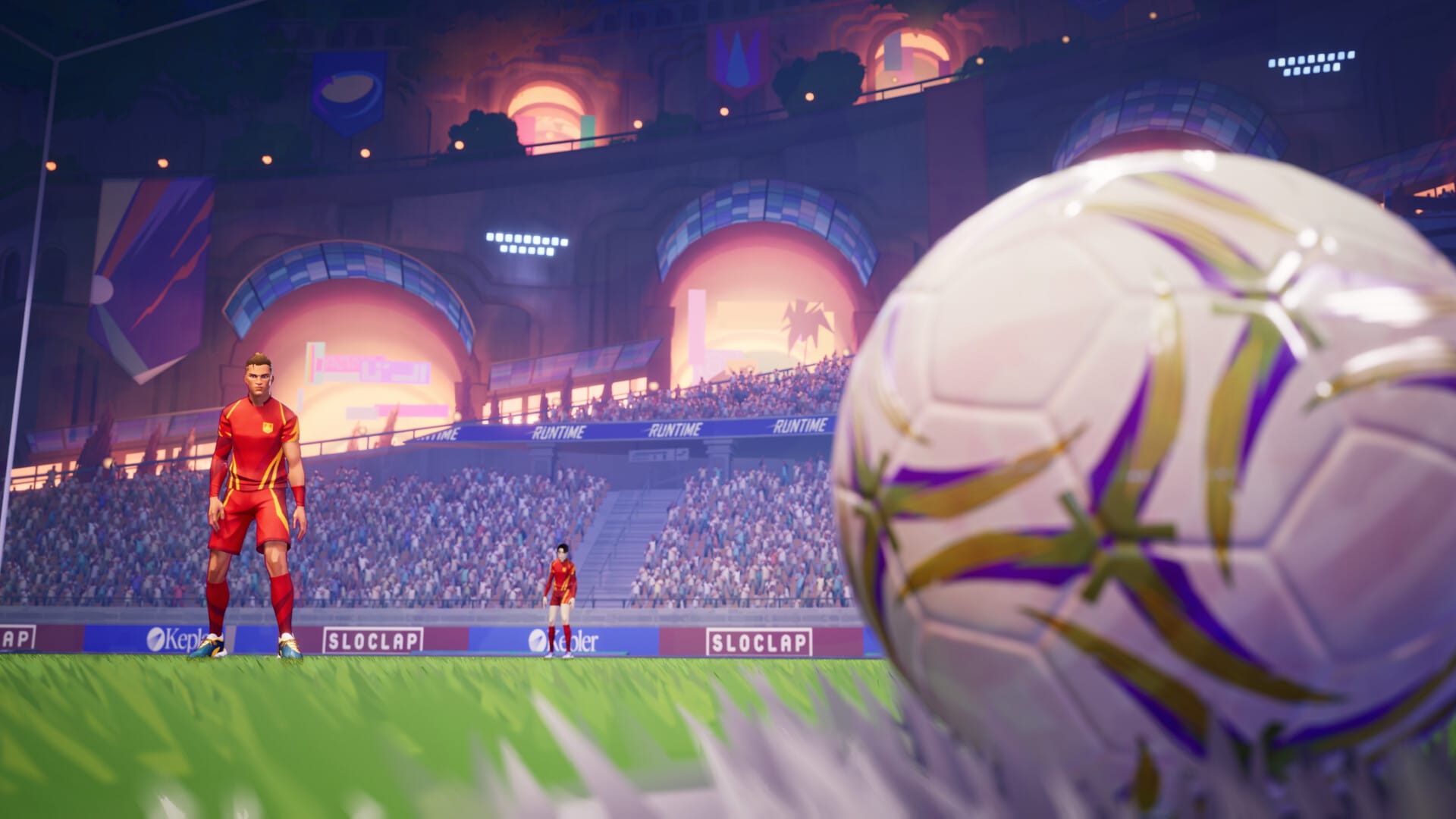A Beautiful Game
This is the essence of football

To say I’ve always been surrounded by football feels almost redundant as a British male. But to those unfamiliar with life in the UK, or, indeed, in much of the world outside the United States, it’s difficult to convey just how deeply the sport permeates daily life. Football isn’t just a pastime or a weekend distraction; it is cultural oxygen. It informs social rituals, friendships, and identities. It is, quite simply, the backdrop to everything.
The overwhelming socio-political power of football has long been noted across the globe. As David Goldblatt writes in The Ball is Round, football is “the global game,” one capable of helping explain the last 150 years of world history. It’s a force that transcends class, race, and geography, binding people together not just in their triumphs, but in shared frustrations, myths, and dreams.
In my own life, football has been a constant: from muddy Sunday league pitches to tense lunchtimes in school corridors, where transfer rumours sparked heated debates with the same gravity we might later assign to politics or career decisions. Between the ages of 11 and 18, every week was measured out in matches played, matches watched, and conversations about football - at school, on the walk home, and late into the night through Xbox Live parties and endless sessions of FIFA.
That game, in particular, has been its own kind of obsession. It's no exaggeration to say I’ve spent tens of thousands of hours playing FIFA, across sleepovers, tournaments with friends, and countless solitary evenings sunk into Ultimate Team. It has frustrated me, thrilled me, and, like so many, enticed me with its shiny digital packs, drawing me into a reward system that mimics gambling far more than sport.
Football, both in its physical and digital form, has been my longest-standing companion. It is not just a game. It is memory, community, and identity. To understand football, you have to understand how thoroughly it embeds itself into the lives of people like me, not as a sport, but as an environment we never really leave.

“All that I know most surely about morality and obligations I owe to football.” - Albert Camus
On October 16th, 1957, Albert Camus was midway through lunch at a restaurant in Paris’s Latin Quarter when a young representative from his publisher’s office approached his table. Interrupting the waiter, the man delivered unexpected news just announced over the radio: Camus had been awarded the Nobel Prize in Literature.
A week later, the newly crowned laureate was interviewed on French television, but not in a plush studio or grand library, as one might expect. Instead, he was seated in the stands at Parc des Princes stadium, surrounded by a crowd of 35,000, watching Racing Club de Paris take on Monaco. At one point, the Racing goalkeeper mishandles a deflected cross, allowing the ball to roll in at the near post. The camera cuts to Camus as he’s asked for his reaction. Ever compassionate, he cautions viewers against blaming the keeper too harshly.
Camus’ love of football is often reduced to a single, widely misquoted line: “All that I know most surely about morality and obligations I owe to football.” But his connection to the game ran far deeper than nostalgia or a clever turn of phrase. In 1959, less than a year before his death, Camus said in an interview that, aside from theatre, football had been his only real “university.” For one of the most significant French writers of the 20th century, the football pitch wasn’t just a field of play, it was a place where the essential truths of existence revealed themselves. In its physicality and its drama, Camus saw a mirror of life’s beauty, its cruelty, and its quiet grace.
Translating this feeling, importance, and transcendence into a video game can be hard. There have been multiple attempts throughout the medium’s history. The earliest example, NASL Soccer, was the first such effort to digitise the world’s most popular sport. Released in 1980 for the Intellivision, it was far from realistic by today’s standards, but it marked a crucial starting point. The game featured a vertical pitch and a scrolling screen, innovative for the time. Each team had only three outfield players and a goalkeeper, controlled from a top-down perspective, and the ball stuck to the player’s feet like a magnet until passed or shot.
There were no kits, stadiums, or licensed clubs, just red and blue figures darting across a green background. Yet it was recognisably football; you could dribble, shoot, and score. It was clunky, sure, but it captured the essence of the sport: movement, rhythm, and competition. For many kids in the early '80s, it was the first time football could be played on a screen. But, despite its ambitions, it wasn't really football.
Even the recently retitled EA Sports FC, has struggled to capture the ineffable essence of football. The game purports to be a simulation, and perhaps there could be no more fitting title. Unlike the earliest examples of digital recreations, the game has every player, team, organisation, coach, and stadium that a fan could want. I can decide to play the Merseyside derby and hear ‘You’ll Never Walk Alone’ being chanted across the stadium which has been recorded as accurately as modern audio files allow, and yet it feels like only a simulation. Something that mimics the sport I love but missing some essential quality, essence, perhaps even its soul.
It was for this reason that my time in Rematch’s open beta weekend was revelatory. It was a feeling I didn’t think I would ever experience without studs digging into the ground beneath my feet, the magnetic pull of the ball filling my chest with a burning desire to chase after it. When I stepped onto Rematch’s digital five-aside pitch for the first time, that exhilarating feeling wasn’t just simulated; it felt like nothing a game had ever provided me before. It felt like the beautiful game, with all its follies and frustrations, but also its triumphs and joys.

Every match is a new challenge, and every minute is a chance for heroism, villainy, redemption, and tragedy.
One of the key differences between Rematch and FIFA lies in both its perspective and team composition. Unlike FIFA, which typically offers a broadcast-style view of the pitch, Rematch uses an over-the-shoulder perspective, much like the one seen in Sloclap’s previous title Sifu. This shift in perspective gives the game a more personal and immersive feel, focusing on the player’s experience from their point of view. In terms of team composition, Rematch also deviates from the norm. Rather than controlling an entire team, you play as an individual on a team of others. These changes set Rematch apart, capturing the individual responsibility and dynamism of football in a way never done before.
I have always felt that the essence of different sports lies in the dynamic between individual performance and team cohesion. In sports like tennis, the focus is clearly on the individual, where each point is determined by personal skill and decision-making. In contrast, team sports like rugby place a much greater emphasis on collective effort. Success in rugby is defined primarily by the cohesion and trust between teammates. While individual performances, such as a crucial run or a key tackle, are important, it is the team’s unity and strategic coordination that truly define the outcome of the game. Cricket, however, is a more individualistic sport in spite of its team structure. While the team works together, it is always the individual performances of batters and bowlers that ultimately determine success. The overall team dynamic of cricket plays a secondary role to the personal achievements of the players.
This dynamic is what makes football so unique. There is no defined expectation of success. A game can be shaped by an individual if they are simply that good. Yet, in another match, team effort may be the most important contributor to success; no single player could make the difference, so tactical understanding or even basic effort and fitness take precedence. A fresh football pitch offers something unique: endless opportunity. There are Infinite ways to make your mark on the game, to define your role in a ninety-minute story. This is what Rematch captures in its essential game flow - opportunities. Every match is a new challenge, and every minute is a chance for heroism, villainy, redemption, and tragedy. The outcome of my performance depends on one thing - me. The outcome of the match depends on one thing – us.
It achieves this through the incredible control you have over the ball. In every football game I know, when a ball is passed to you, the player you control automatically takes possession. The ball sticks to their feet, almost like a magnet, much like it did in the early days of NASL Soccer. But that’s not the case in Rematch. The ball is not glued to your feet. Instead, every kick is deliberate. When someone passes it to you, you must press a button to move the ball away from your feet and run onto it. This input is even contextual. If someone is sprinting toward you as you receive the pass, you have the flexibility to control the ball away from their impending tackle or flick it into the air if you anticipate a slide tackle correctly.
All of this paired with the kinesthetic thrill of watching a beautifully orchestrated animation from a perspective more similar to that of an action game. Increasing your speed, turning a sharp ankle-breaking turn, or crunching the legs of an unsuspecting player all land with the same exhilaration of a punch and a kick in Sifu. When I got my hands on this beta and began to master the intricate and masterful game design of Rematch I couldn’t help but think, “Is this the beautiful game?”

For those unaware of the FIFA-playing community’s frustrations with the series' recent direction, let me explain. FIFA is a game dominated by statistics. Every shot, tackle, header, and pass is largely predictable; you’ve seen a player’s body shift and contract the same way a hundred times, and once you’re good enough, you know exactly what’s about to happen. This makes the game highly tactical and, like modern football, focused on precise setups that minimise risk and capitalise on mistakes. It isn’t a game of spirit and joy, it’s a game of numbers. If my team sits in a low block and yours doesn’t, you’ll get fewer chances than me, and I’ll probably win.
Rematch doesn’t care about any of that. With each player controlling an individual on the field in teams of four or five, human psychology comes into play. Sure, your team could act like a hivemind, executing precise man-to-man marking and Mourinho-esque counter-attacks, and yes, that might even be effective. But, of course, that might also mean someone doesn’t get the ball as much as they’d like… and we can’t be having that, can we?
Jonathan Wilson begins Inverting the Pyramid, his landmark study of football tactics, with a striking Latin phrase: "Felix qui potuit rerum cognoscere causas" - “Happy is he who can understand the causes of things.” The quote taken from Book II of Virgil’s Georgics, is more than just a poetic flourish; it signals Wilson’s intent to dig beneath the surface of the game, to trace not just what happened, but why.
Its inclusion at the outset of a book about football is deliberate, elevating the study of tactics to something akin to philosophy or science; a field governed not by superstition or sentiment, but by logic, causality, and evolution.
Virgil’s Georgics is itself an unusual but revealing source. Ostensibly a work about agriculture, it carries deep philosophical undertones. Virgil was influenced by Epicureanism, a worldview that, while acknowledging the gods, places little emphasis on divine intervention. Instead, it values human reason, agency, and the pursuit of understanding as the foundations of a fulfilled life.
That same spirit animates Wilson’s work. Inverting the Pyramid is about uncovering the systems and structures that shape football, moving beyond the myth of individual genius to reveal the deeper patterns that govern the sport. Just as Virgil encouraged a clear-eyed view of the natural world, Wilson urges us to look closely at the beautiful game, to question assumptions, and appreciate the tactical intelligence that underpins its evolution.

I’m so happy Rematch lets me pull off an expertly timed rainbow flick into a screaming volley that flies into the top corner of the goal...
This may be brilliant, profound, and an essential part of the modern game of football. From Johan Cruyff’s 3-4-3 formation, more than just a set of positions but a dynamic, fluid system rooted in his deeply held belief in Total Football; to Pep Guardiola’s tiki-taka and the intricate, rigid positional structure applied across all eleven players; to Jürgen Klopp’s electrifying, high-speed emergence of gegenpressing, with his front three launching into the defensive line with the reckless abandon of especially brave kamikaze pilots.
But I’m so happy Rematch lets me pull off an expertly timed rainbow flick into a screaming volley that flies into the top corner of the goal - something that would have Jonathan Wilson in tears, overwhelmed by the reality that my individual brilliance simply cannot be contained by my opponents’ tactical nous. Tactics be damned when a player on my team is weaving through tackles, refusing to pass, and yet I can’t blame him, because he has the tidy feet of Messi and the flair of Ronaldinho. This is the part of football that FIFA and Jonathan Wison fail to capture, obscured by details and technicality - the heart, the passion, the drive… the soul.
In this way, Rematch truly represents the greatest translation of football to date, even if it doesn’t resemble the modern professional game as closely as its contemporaries. My memories of football are from playing in the park with friends: getting frustrated when someone didn’t pass and instead skied a 25-yarder because he rated himself too highly; being physically outmuscled by someone and spending the rest of the match obsessively chasing that same player down, even at the expense of my own team’s fortunes; and trusting myself to take the shot when a better pass is on, and that trust paying off as the net ripples. My teammates and I want to be heroes - and if we are good enough, Rematch lets us. Narratives emerge around us as voice chat shifts from hatred to admiration when someone glides past a sliding tackle and calmly chips the ball over a hopelessly naïve keeper, then wheels away to celebrate into Rematch’s fake broadcast cameras.
That is the spirit of football, the same spirit that Rematch captures. It may not replace EA Sports FC as the most popular football game, but no matter, because it is a beautiful game.
